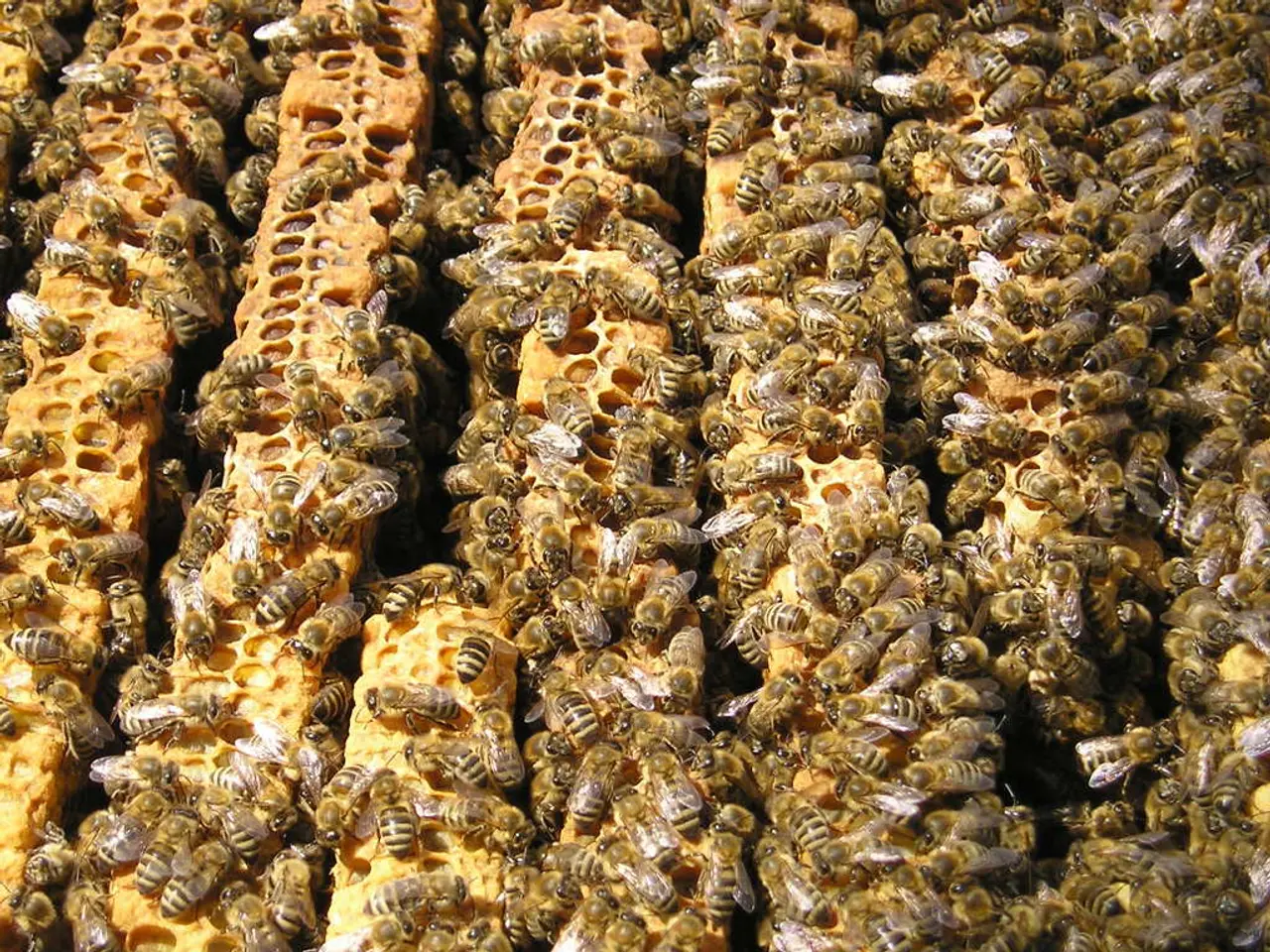Mead revival: "Let's bring nature back to life and enjoy a tipsy adventure along the way"
In recent years, mead—an ancient beverage with roots dating back to 6,500 BC in China—has been experiencing a resurgence in popularity within Britain's craft beverage industry. This revival is driven by consumer interest in traditional, artisanal, and locally sourced alcoholic beverages.
British craft meaderies have been emerging, focusing on quality and innovative flavors. Mead producers like Hive Mind Mead, based in the Wye Valley, offer regionally specific flavors, while Christopher Mullin from The Rookery hand-forages every flower, fruit, and herb that goes into his products. Hive Mind Mead sources their honey primarily from their own hives, growing from 20 in 2018 to 200 in 2025.
The Rookery Craft Mead produces a traditional raspberry mead that resembles a medium-dry rose wine, suitable for pairing with seafood or creamy dishes. Hive Mind also offers whisky barrel-aged and rum barrel-aged meads, as well as fizzy fruity meads served in cans.
Gosnells, based in London, describe their canned mead as a 'fizzy pint' and claim that 60% of their consumers are female. Gosnells' signature mead, Gosnells of London, is made primarily with honey from an area full of orange blossom, giving it a light, citrus flavor. Gosnells sources honey from across Europe and uses blended honey for a standard flavor in their products.
Stoneforge Mead, another British meadery, leans heavily into the fantasy side of things, with a website that speaks of realms and great battles between giant wasps and magic bees.
Mead is gluten-free, paleo-friendly, and retains some of the vitamins and minerals found in honey. Moreover, mead production uses less water, chemicals, artificial fertilizers, and machinery compared to other drink categories, making it a sustainable choice.
Mead tends to fall into two categories: traditional mead, which is like a dessert wine or sweet port, and sparkling mead, a lighter style akin to sparkling wine, cider, or lemonade. Stronger meads, often labeled as 'traditional,' are ideal for serving with a cheeseboard or using in cocktails.
During the Middle Ages, newly-weds were given a month's supply of mead to improve their chances of conceiving, and it was enjoyed at feasts and fayres. In Celtic culture during the 10th Century, King Hywel 'the Good' of Deheubarth passed laws stating that every farmstead should keep a barrel of mead or four barrels of beer.
While mead remains a niche product compared to beer, cider, and spirits, its profile has been growing in craft bars, festivals, and specialty shops. Mead's association with heritage and its unique positioning as an ancient fermented drink give it an appealing story for consumers interested in distinctive craft beverages. However, it still occupies a relatively small segment of the broader craft alcohol market in Britain.
For the most up-to-date and detailed industry analysis, consulting recent market reports from British beverage trade organizations or craft beverage associations would be advisable.
Craft beer enthusiasts interested in lifestyle shifts might find solace in the world of sustainable-living, where home-and-garden practices and food-and-drink choices align. In addition to their eco-friendly homes, they could embrace the traditional art of mead-making, as this ancient beverage, such as Hive Mind Mead or Gosnells of London, is not only gluten-free but also requires less water, chemicals, artificial fertilizers, and machinery during production compared to other drink categories.




